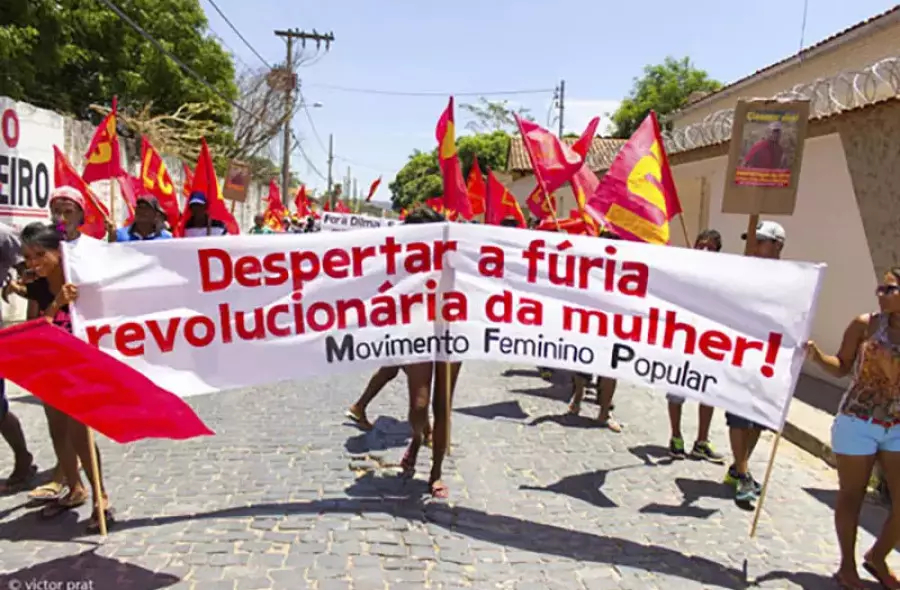We share an unofficial translation of an article by the Popular Women’s Movement – Brazil (MFP-Brasil) on the occasion of the still ongoing elections in Brazil.
The current elections and the women's question
In these elections, marked by the false polarization between Lula and Bolsonaro (false polarization not because they are identical in terms of the power groups they represent, but because both are committed to maintaining and defending the old order, although by different means), one of the crucial issues has been the women's question. As the majority of the Brazilian population, women are seen and treated by the postulants to the government as voters, and not as political subjects, members of distinct social classes.
It is symptomatic that a considerable portion of poor women, who live in the peripheries of large cities or in vast rural areas, support an ultra-reactionary candidate like Bolsonaro, even with all the nonsense he has said throughout his career. This is especially noticeable among the faithful of the evangelical churches, whom the current president seeks to attract to his bases. Why is this so? Because, after all, no promise of the so-called Citizen Constitution of 1988 has been fulfilled. Not even the equality of salaries for the same function – a democratic demand from the early days of the bourgeoisie – was fulfilled. The so-called evangelical vote brings with it decades of brutal exploitation and oppression over these economically and politically marginalized contingents of the population; it should be explained not by an innate “conservatism” of poor women, but by their material condition of existence. Not infrequently, the church appears in their eyes as the only alternative to police repression or to the loss of their children to drugs and crime.
On the other spectrum of this dispute, the candidacy of Lula and the PT seeks to attract the female vote by managing an electoral front that encompasses from typical representatives of the dominant classes – such as the landowner Simone Tebet –, through opportunistic forces and “post-modern” identities, to sectors of the Catholic Church. In their electoral struggle, anything goes, except having principles: the champions of petty-bourgeois radical feminism and the most notorious statements against abortion, in defense of the “family,” etc., coexist within opportunism. About the material situation that pushes millions and millions of women into unemployment, the most vile exploitative relations and prostitution, both candidates present, you see, a unique program: to turbocharge the welfare programs, disputing who is their creator. All this in order to keep intact the bourgeois-landowning pact, servant of imperialism, mainly Yankee, that throughout the decades makes the face of the governments change, without their essence changing.
Bourgeois and petty bourgeois feminism cannot emancipate the women of the people. In their effort to “humanize capitalism”, such forces foment the deception that the women's struggle develops apart from the class struggle. The Popular Women's Movement asserts, on the contrary, that the true and great distinction is not between believing and non-believing, supposedly “conservative” or “progressive” women, but between the oppressed women of the people and the women of the ruling classes, who are agents of the oppression of the masses of the people and, within them, of other women. There can be no equality, solidarity or identity between exploited and exploiters! This is vain demagogy, pure lie!
Let us not deceive ourselves: the resounding record of abstention and rejection to the electoral farce, despite all the blackmail moved by an unprecedented apparatus of counter-propaganda and lies, only confirms how much this system of power is in ruins. As the great Karl Marx said, the emancipation of the workers (where women are included, half of heaven) can only be the work of the workers themselves, conquered through hard struggle, and not through the gift of some “savior of the fatherland”.











